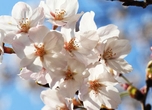
イラストレーション: Haruna Nitadori
Posted: Thu Mar 10 2011
Born into a family of shrine and temple builders, Sachiaki Kobayashi – or Dr. Copa, as he prefers to be known – got an early introduction to the principles of feng shui. Today, the 63-year-old is regarded as one of Japan's leading experts on the subject, though he's always happy to share some of the limelight with his daughter Miho, a.k.a. Daughter Copa. The good doctor talked to Time Out Tokyo about the history of feng shui, running away from home, and why you don't have to be a diminutive musical genius from Minneapolis to wear a purple suit.
I’ve noticed that you’ve recently been making a number of public appearances wearing a light purple suit. Why purple?
Lavender is a lucky colour for 2011. Historically, it's thought to have been reserved for nobles. It's also an extremely versatile colour that’s capable of filtering out the good and guarding against the bad. That's why people who needed to filter the good from a variety of different opinions in order to fulfill important duties, such as protecting or governing their people, chose to wear lavender coloured clothing. According to feng shui, 2011 is a year in which people need to be able to make good judgments with both their eyes and their hearts – hence the importance of this particular colour.
Come to think of it, towards the end of last year, figure skaters Mao Asada and Kanako Murakami wore lavender coloured costumes…
I’ve been asked by some of our country’s top athletes about lucky colours before. Last year, our women gymnasts did rather well, don’t you think? I notice you’re wearing all black. You’d improve your chances of achieving better fortune if you wore some lucky colours, like lavender – though others may think your sense of fashion had suddenly become a bit skewed (Laughs).
My wardrobe is pretty much all black and changing everything now would just be too much trouble, but I could probably manage some lucky coloured accessories…
When you choose clothes that match the colour of the year, the good things that you experience or learn whilst wearing them can come back to bring you happiness again four or five years down the line – which highlights just one of the beauties of feng shui. This kind of thing can help newlyweds who become sick of each other as the years go by, even though they married for love. In order to keep that newlywed feeling of love for as long as possible, couples can buy things together and create places that remind them of the affection they first felt. Feng shui is a field of learning that can help create such happy memories; it’s something that everybody, no matter where they are in the world, can use it – because feng shui forms part of the foundations upon which we live.
Time Out’s birthplace, the city of London, is a place that’s full of feng shui. For a period of a hundred years, throughout which Hong Kong was under British colonial rule, London adopted a number of feng shui principles into the interior designs of various old buildings – largely through renovation. In other words, although the structures of buildings remained unchanged, the interiors were recreated according to principles of feng shui – resulting in a number of buildings that appear European from the outside and oriental on the inside.
In some respects, the British have a somewhat similar outlook to the Japanese, don't they?
Indeed. I think that’s partly because Britain has a royal family. America may lead the world economically, but I think Britain seems to lead the world spiritually. This year’s British royal wedding should help Britain progress, too. I think things are looking good for Britain.
Where does your interest in feng shui originally come from?
My father was a carpenter who specialized in shrine and temple construction – as was my grandfather, which required them to have a good understanding of both Shintoism and Buddhism. It also required a good understanding of alignment, nature and the environment – things that govern feng shui. My father taught me these things from an early age. There wasn't one single thing that led me to get interested in feng shui – it just came about naturally and, before I knew it, I’d become a feng shui cyborg (Laughs).
Feng shui becomes fashionable in Japan once every four hundred years. It first flourished in 8th century Kyoto, then again during the 12th century, in Kamakura, and then again during the early 17th century, when the shogunate moved to Edo. In other words, feng shui was used in the building of our cities and our nation. If everybody practiced feng shui, we could improve our country. In order to give our country the push that it needs, we need to band together – that's how our nation, which makes use of feng shui once every four hundred years, was created.
Nation-building aside, we've heard that you also used feng shui around the house to help raise your daughter as an able communicator. What’s that all about?
People are basically animals. We’ve all received education so we forget that we’re really just like beasts. What people become depends on what they learn (Laughs). Appearances are easily changed and, in a sense, a job is just a part of a person’s appearance.
When my daughter was born, she cried with such a cute voice that I thought she’d probably be well suited to a job in which she could use her voice to make a living. So, thinking that I needed to create an environment that would encourage my little bird to sing, I changed the interior of our house accordingly. Obviously I didn’t want her to become a crow! To encourage chirping early in the morning, she needed to be in a southeast-facing room that received a good amount of morning sunlight. Thinking about colours, I wanted to focus on four main things: to encourage listeners to feel that she is kind, healthy and loveable, and to encourage her to become financially secure. This led me to a gentle white, a healthy red, blue – to encourage talent, popularity and knowledge – and yellow, for wealth. That’s the colour scheme I chose for the room, and in doing so, over the months, the power from those colours gradually seeped into her.
Both you and Daughter Copa live similar lives. Do you get on well?
We do. We once ran away from home together. My daughter said ‘I hate mama’ and I replied ‘papa hates mama too,’ so we left (Laughs).
That sounds like fun. Although I can imagine it must have been quite a shock for mama…
It’s important to maintain a good sense of humour in life. We left while mama was in the bath – so it probably was a bit of a shock, but it also led mama to rethink a few things.
I see. So maybe giving her some time alone to think about things was for the best. Is there anywhere you like to go to think things through yourself?
That would be Kasumigaseki. There’s a lot of good knowledge around that area, so when I take a walk there, good ideas pop into my head one after another.
Is knowledge something that falls from the sky?
Knowledge falls like rain. Closing your heart to it or being stubborn is no good. If your body is too rigid then knowledge won’t be able to enter it and you won’t be able to use what knowledge you have. When knowledge comes your way, you should make a note of it so that you don’t forget, by sending an email, for example, or by making a recording on your mobile phone. I’ve had knowledge come to me before, forgotten what it was and then hurriedly returned to the same place again in the naive hope that it might come back to me (Laughs).
Tags:
Tweets
- About Us |
- Work for Time Out |
- Send us info |
- Advertising |
- Mobile edition |
- Terms & Conditions |
- Privacy policy |
- Contact Us
Copyright © 2014 Time Out Tokyo


















Add your comment